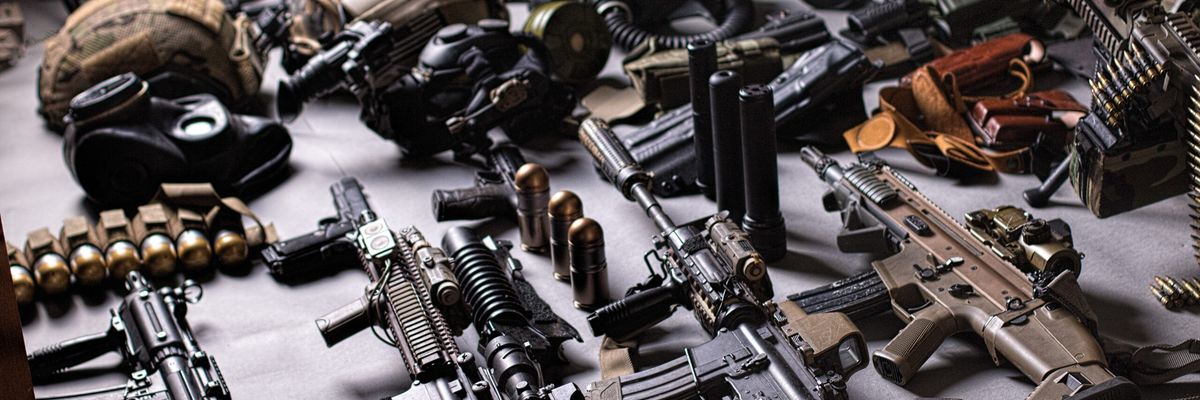Three Democratic House members sent a letter to Pentagon officials this week asking what is being done to prevent theft of military equipment. At least 1,900 military firearms were reportedly stolen from 2010 to 2019, with some having been used in violent crimes.
The report by the Associated Press back in June details how U.S. military equipment, ranging from pistols to machine guns, is stolen or lost across the world. For example, one Navy SEAL lost his pistol in a bar fight in Lebanon. But there is plenty of deadly equipment that is surfacing here in the United States — a box of armor-piercing grenades was recovered in an Atlanta backyard after it was stolen from an Army training in Philadelphia. Stolen guns have also wound up in robberies and the homes of gang members.
Democrats Jamie Raskin (Md.), Stephen Lynch (Mass.), and Robin Kelly (Ill.) want answers. “Given the epidemic of gun violence spreading across the United States, which has claimed more than 35,000 lives so far this year, we appreciate that Pentagon leadership is committed to addressing this challenge,” they say In their letter. But, they add, “we are concerned that DOD has seemingly not yet developed a coherent strategy to improve its ability to account for military weapons and equipment.”
The Pentagon has so far resisted providing explanations on how military equipment gets stolen.
In February, ten pounds of C4 plastic explosives vanished at Twentynine Palms Marine Corps Base in Southern California. Even though the explosives were recovered in June, the military offered no explanation. The equipment may have just been lost, but other cases show servicemembers are profiting on gun trafficking. Indeed two years ago,a soldier at Fort Bragg stole over $2 million in equipment. The former Special Forces soldier was sentenced for 25 months in jail and a $250,000 fine.
Seeing that the military is reluctant to acknowledge the amount of equipment stolen, the AP built its own database which found that the number of weapons disappeared has been undercounted. While talking to AP, Brig. Gen. Duane Miller (one of the top Army law enforcement officials) initially understated the number of missing guns by several hundreds. Guns also often vanish without a paper trail, making it impossible to register and investigate such disappearances.
Aside from the possible impact on gun violence on American streets, the AP report is indicative of a larger trend of the Pentagon’s reluctance to be held accountable. Indeed, Congress had to force a financial audit on the Defense Department and it has never passed, largely because auditors couldn’t get enough records to make an assessment.
Audits found mishaps like accidentally sending nuclear nose cones to Taiwan. They also found money laundering tactics aimed at keeping unspent money within the Pentagon instead of returning them to the Treasury Department — a move that veteran Pentagon staffers say is unconstitutional.
















